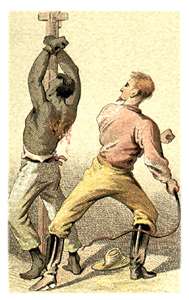The United States Economy and Economic Slavery 2013
An Overview
Ask anyone on the street if slavery exists and they will most likely say yes, yes it does, in those countries over there…you know, over there! They will shake their heads in sadness and indignation, and say all the right words, how terrible it is for someone to own and control another person. Sad indeed!
Ask anyone on the street if sexual slavery exists and most will likely say yes, yes it does, in those countries over there….you know, over there! And some will even know that sexual slavery happens in the United States. They will shake their heads in sadness and indignation, and say all the right words, how terrible it is for someone to own and control another person. Sad indeed!
Ask anyone on the street if they are a slave and they will take a step back, look at you as though you had lost your mind, and shake their heads and say no, not me, I’m a free person and I always have been free. What’s the matter with you bro? You ain’t makin’ no sense! How could I live in the United States and be a slave?
And yet they are!

Definition of Slavery
Let’s begin at the beginning, shall we? What is the definition of slavery? According to our old pal Webster:
: drudgery, toil; : submission to a dominating influence; : the state of a person who is a chattel of another.
I would like you to take a minute and think about that definition, and then think about the state of the economy in the United States. Don’t just think of the current economic index, and don’t just think about the unemployment figures, but also think about the general structure of our economy, from top to bottom.
Economic Realities
The United States is now the fifth worst in the world regarding distribution of wealth among its citizens. The top 1% of its citizens own 40% of the privately held wealth in the U.S., and the next 19% have 50%. In other words, 20% of the population owns 90% of the private wealth, leaving ten percent of the wealth for the bottom 80%.
Who are these elite who hold the purse strings of the United States?
The Top Ten
Entrepeneur
| Net Worth
| Home Town
|
|---|---|---|
Bill Gates
| $59 billion
| Medina, Washington
|
Warren Buffett
| $39 billion
| Omaha, Nebraska
|
Larry Ellison
| $33 billion
| Woodside, California
|
Charles Koch
| $25 billion
| Wichita, Kansas
|
David Koch
| $25 billion
| New York, New York
|
Christy Walton
| $24 billion
| Jackson, Wyoming
|
George Soros
| $22 billion
| Katonah, New York
|
Sheldon Adelson
| $21 billion
| Las Vegas, Nevada
|
Jim Walton
| $21 billion
| Bentonville, Arkansas
|
Alice Walton
| $21 billion
| Fort Worth, Texas
|
Richest Companies in the World
According to Forbes, in 2011 the ten richest companies in the world were:
The Top Ten 2011 Figures
Corporation
| Net Worth
| Nature of Business
|
|---|---|---|
Walmart
| $421 billion
| retail
|
Exxon Mobile
| $370 billion
| gas and oil
|
Shell
| $368 billion
| gas and oil
|
bP
| $297 billion
| gas and oil
|
Sinopec
| $289 billion
| gas and oil
|
Toyota
| $241 billion
| automotive manufact
|
Petro China
| $229 billion
| gas and oil
|
Total
| $212 billion
| gas and oil
|
Chevron
| $204 billion
| gas and oil
|
JP Holdings
| $200 billion
| investments
|


The Decline of Unions
The topic of unions is a galvanizing one in the United States; whatever your opinion of unions, the fact is that they are declining rapidly in this country. The latest figures show that just over 11% of citizens belong to a union, and in the private sector the percentage has dropped to just over 7%, the lowest level since the 1930’s.
The reason for the decline? Quite simply, with a decline in jobs and the amount of outsourcing to other nations, U.S. citizens are scrambling so ferociously for jobs that they will accept lower pay and undercut a union worker. We are, in fact, defeating ourselves. There was a day in America when nobody would consider crossing a picket line; workers stood united against the businesses to insure that a decent wage was paid and benefits were offered. Those days are gone! There is no united front among laborers in today’s economy; we are, in fact, seeing Darwinism at its most basic level, and only the strong will survive.
Some more thoughts
- Living Simple....The New Economic Reality: Change Must Happen One Person At A Time
The current economic landscape is bleak; how are you situated if things get worse?
More food for thought
- The American Dream: Fact or Fiction
Is there still an American Dream? What is it? Is it Definable? This article looks at the history of the American Dream and answers those questions and more.
Unemployment and the Price Index
Yes, unemployment is declining slowly, but upon second look it should be noted that in many cases, someone who has been unemployed and then finds new employment is trading down in job pay. In other words, a worker laid-off from a $60,000 per year job who finds a new job two years later, is not finding a job that pays $60,000, but in many cases a job that pays significantly less.
Middle-management types are now applying for jobs delivering pizza; yes, they are employed, and the unemployment figures improve, but the newly hired worker has a boat-load of problems even with the new job. Why? Because Americans spent at a higher level prior to the recession of 2007, and that spending was all too often financed with a down payment and monthly payments. Those monthly payments are still due but the income has shrunk! Bad recipe for success!
Meanwhile, the price index rises on all fronts. Consumer goods, real estate, you name it, the price index is on the rise, so that the buying power of the average citizen is much less than it was ten years ago.

The Lobbyists
“Members of Congress should be compelled to wear uniforms like NASCAR drivers, so we could identify their corporate sponsors.”~Caroline Baum
Do you think your government is concerned about the average American? Do you think your representatives are in there fighting for the little guy? Consider the table below, the latest on lobbyist spending at the Federal level.
This crosses all boundaries of political parties. This is not a Democratic gig, nor is it a Republican gig. Spending by lobbyists advancing their political agendas happens every single day in the political arena, and the biggest spender wins. Looking at the chart, who do you suppose is winning?
The Top Eleven 1998-2010
Clients
| Amount
| % of Total
|
|---|---|---|
Financial, Insurance, Real Est.
| $4,274,060,331
| 15%
|
Health Companies
| $4,222,427,808
| 15%
|
Misc. Businesses
| $4,149,842,571
| 14%
|
Commerce, Electrical
| $3,497,881,399
| 12%
|
Energy, Natural Resources
| $3,104,104,518
| 11%
|
Transportation
| $2,245,118,222
| 8%
|
Other
| $2,207,772,363
| 7%
|
Ideological, Single Issues
| $1,477,294,241
| 5%
|
Agribusiness
| $1,280,824,983
| 4%
|
Defense
| $1,216,469,173
| 4%
|
Labor
| $427,355,408
| 1%
|


And What Would the Point Be?
First, let me say that this is not a political article, nor is it a big-business bashing. I have nothing against capitalism as long as the capitalists play fair. If the special corporation tax deductions were eliminated and lobbyists were not allowed to influence politicians, I would be a happy camper. If corporations cared about the United States worker then I would be a happy camper. If jobs were not outsourced in the name of profit I would be a happy camper, and if our government cared as much for the citizens of this country as it cares for foreign investors, I would be a happy camper.
On the flip side, the American consumer/worker must shoulder much of the blame. We did not learn from the years prior to the Great Depression. As a populace we have continued to purchase on credit, continued to extend ourselves to dangerous levels of over-spending, and then we cry foul when the economy goes down the toilet because we can’t pay our inflated expenses that we only have ourselves to blame for.
Are average Americans economic slaves? Do we submit to a dominating influence? You bet we do, and the dominating influence is big business. Are we the chattel of another? If not, what would you call it? The economy is completely out of our hands. Decisions are made daily by corporations, banks, and politicians that directly affect and control our lives, and those decisions are completely out of our hands. We supply the labor and we are thrown crumbs for our efforts. We are, in effect, bought and paid for, resting between a rock and a hard place, and the American Dream is a fairy tale.
There is still time to salvage some dignity and step out of the slaves’ quarters. More and more people are recognizing a losing battle for what it is, and divorcing themselves from the rat race. More and more people are practicing responsible spending and embracing frugality. More and more people are looking at the economic landscape and saying ENOUGH!
Are we slaves of the economic and political system? Most definitely, but it does not need to be so! The choice is yours! Hard times call for hard decisions, and those times are now! Blaming Chase, Chevron and Exxon for our problems is ludicrous. They are just big businesses doing what big businesses do! Blaming the Republicans or the Democrats is ludicrous; they are just politicians doing what politicians do!
Instead of blaming, do something! Instead of living the illusion of freedom, live free! Instead of being an economic slave, be a master of your own world. The choice is yours and yours alone!
2012 William D. Holland (aka billybuc)








